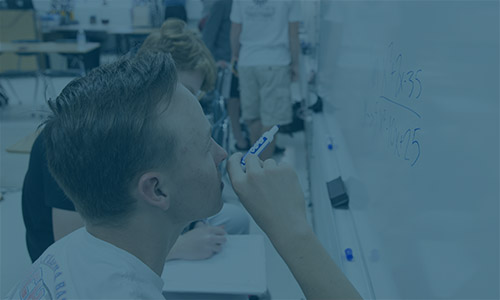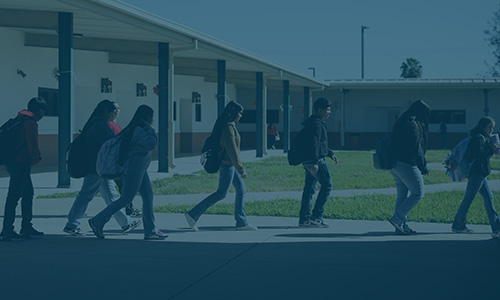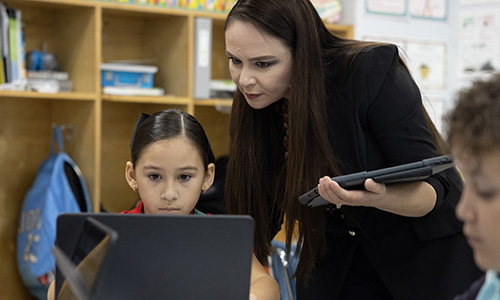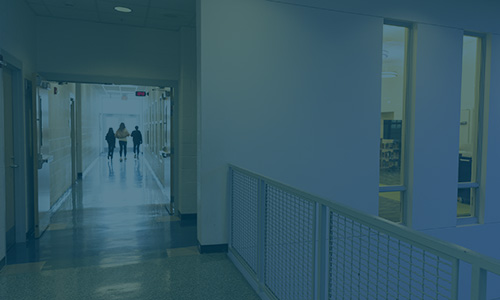Media mention
How to close Boston’s achievement gap during the coronavirus pandemic
2020
The Boston Globe (2020, April 28)

Description
The “COVID slide” will be more profound for students who are unable to access or fully participate in a robust remote learning curriculum. Closing the achievement gap will require Boston city leaders to propose bold, innovative solutions for whenever students are able to return to school in person.
View the sourceRelated Topics


Family engagement as a long-term strategy for continued COVID recovery
This NWEA research report emphasizes the vital role of family engagement in helping students recover academically from the disruptions of the COVID-19 pandemic. The report synthesizes current research on family engagement, examines the effectiveness of current strategies, identifies common barriers, and offers guidance for how districts can communicate more effectively with families about student progress.
By: Ayesha K. Hashim, Rebecca Johnson, Rachel Perera
Topics: COVID-19 & schools, Equity, Growth, Guidance


Boys regain the advantage in middle school STEM skills: Post-COVID trends in gender achievement gaps
The research study used a robust set of data from three national assessments to examine trends in gender gaps in 8th grade STEM skills over the course of the pandemic.
By: Megan Kuhfeld, Karyn Lewis, Gustave Robinson
Products: MAP Growth
Topics: COVID-19 & schools, Equity, Growth, Math & STEM


This is the accompanying technical appendix to the research study, “Boys regain the advantage in middle school STEM skills: Post-COVID trends in gender achievement gaps,” leveraging data from three national assessments, as well as enrollment in Algebra, to examine trends in gender gaps in 8th grade STEM skills over the course of the pandemic.
By: Megan Kuhfeld, Karyn Lewis, Gustave Robinson
Products: MAP Growth
Topics: COVID-19 & schools, Equity, Growth, Math & STEM


Integrating Literacy and Science: A Powerful Partnership for Student Success
This research brief explores the connection between science and literacy instruction documenting the benefits of integrated science and literacy instruction at the elementary level, and highlighting the benefits of integrating instruction while providing research-based guidance on how to effectively do this.
By: Susan Kowalski, Ayesha K. Hashim, Scott J. Peters
Topics: Growth, Equity, Informing instruction, Math & STEM


Practitioner’s Guide to Integrating Literacy and Science
This is the accompanying guide to the research brief, Integrating Literacy and Science: A Powerful Partnership for Student Success, which describes four key components of effective integration of literacy and science instruction at the elementary level. In this practitioner’s guide, we provide sample lessons to demonstrate each of these components in action in an elementary classroom.
By: Scott J. Peters, Susan Kowalski, Ayesha K. Hashim
Products: MAP Growth
Topics: Equity, Growth, Informing instruction, Math & STEM


COVID’s impact on science achievement: Trends from 2019 through 2024
This new report examines the pandemic’s impacts on academic achievement and gain in Science and continues ongoing research by NWEA® analyzing the degree to which the COVID-19 pandemic, and its associated school closures, influenced student learning.
By: Susan Kowalski, Scott J. Peters, Megan Kuhfeld, Gustave Robinson, Karyn Lewis
Products: MAP Growth
Topics: COVID-19 & schools, Equity, Growth


Technical Brief – COVID’s impact on science achievement: Trends from 2019 through 2024
This is the accompanying technical brief to the new report (Covid’s impact on science achievement: Trends from 2019 through 2024) that examines the pandemic’s impacts on academic achievement and gain in Science and continues ongoing research by NWEA® analyzing the degree to which the COVID-19 pandemic, and its associated school closures, influenced student learning.
By: Susan Kowalski, Scott J. Peters, Megan Kuhfeld, Gustave Robinson, Karyn Lewis
Products: MAP Growth
Topics: COVID-19 & schools, Equity, Growth


